City Tavern and Early American Food
From 1774 through 1776, a tavern in Philadelphia that had only been open a few years was the place where our founding fathers assembled after a day of debates. City Tavern, just a few blocks from the State House, was a spot where they could lift a pint, stay the night, and further discuss (or eavesdrop) on the issue of separation. It was also a place to taste dishes made from the game, fruits, and spices coming into the port city.
It still is.
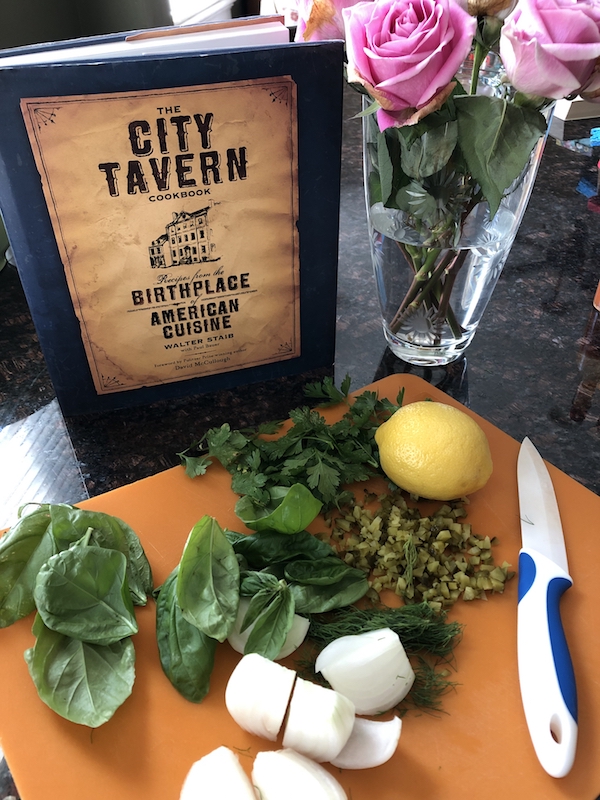
Recipes Recreated
Although City Tavern was destroyed by fire in the 1800s, the National Park Service rebuilt it completely because the original architectural plans existed as did the original footings. A dozen or so years ago, along came Walter Staib—a chef one could describe as obsessed with understanding the origins of 18th century food. In addition to a TV show called A Taste of History, Chef Staib developed a Colonial menu for the tavern.
Now, one can stroll into City Tavern just as folks did in 1776, and order numerous dishes off a lunch or dinner menu, including a chicken or turkey pot pie described as, “tender chunks of turkey, mushrooms, early peas, red potatoes, sherry cream sauce & flaky pastry crust,” and with a, “Pennsylvania Dutch egg noodle accompaniment.” I’ve eaten it. Oh my word. That gravy! This is my idea of Chasing History. (You can see the pot pie in the photo below.)
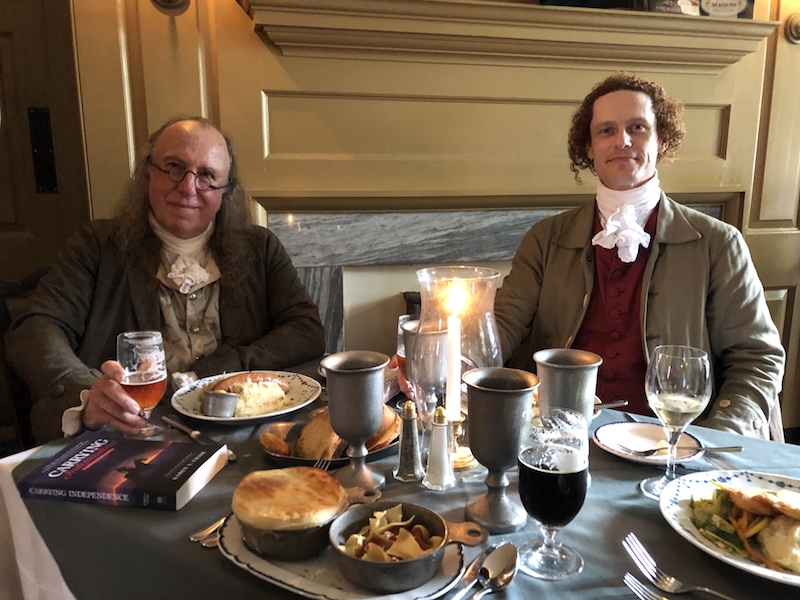
One might also meet or dine with an actual founding father or two—it was a delightful conversation, Ben and T.J.—as I did while in Philly to see the live reading of the Declaration on July 8th. All of this is to say, that when it came to writing about the Revolution, having such a spot where I could experience the food was crucial to creating the era and setting. Food is universally how we humans experience a time and place.
Including Food in Fiction
I love it when books I read include food, so naturally, it’s in mine, too. I’m also in a book club that often chooses stories so we can try new recipes. This month, my own book club read Carrying Independence. (Yes, there was some trepidation—I’ve seen this group when they don’t like a book—but they were lovely.)
Thanks to Chef Staib’s recipe book and TV shows, and a few revolutionary food-inspired websites, we created a feast of salmon and corn cakes, an elegant salad platter of corn, tomatoes, and greens, asparagus, a succulent pot roast, apple galettes, and Shrewsbury cookies, among other things. Swoon is the word you’re looking for. (Thanks to Becky for the food shots.)
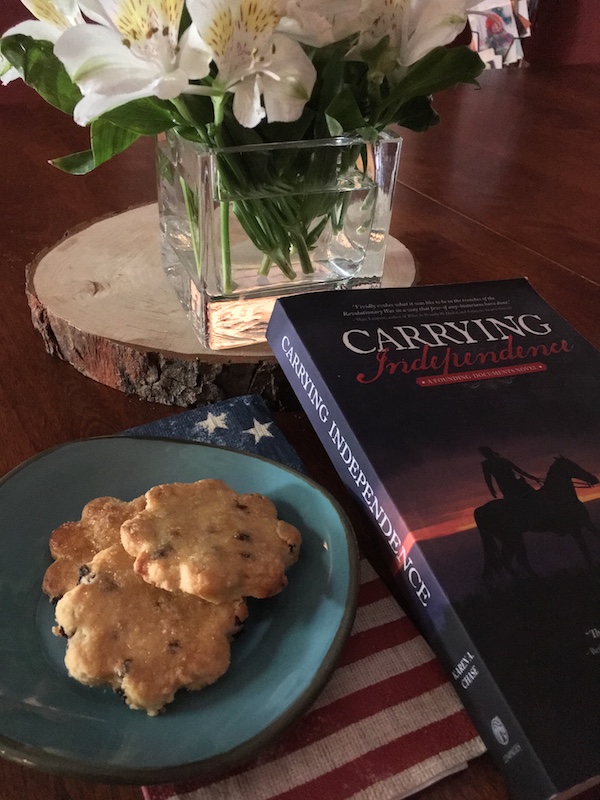
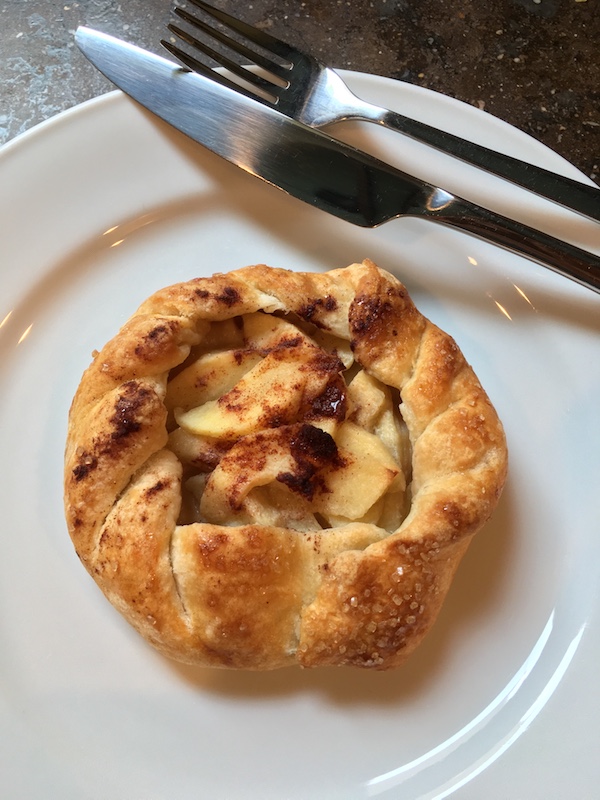
Reader Insights: Chef Staib’s food and City Tavern are recreated within Carrying Independence. My characters meet, drink and dine in a back corner booth of City Tavern in Philadelphia (see photo), and the food and spices they experience are taken from my own in this same place. On my website I’ve included an excerpt—a full chapter—that takes place in City Tavern in that booth.
Now you can get a taste of the history behind Carrying Independence, too. Be sure to mop that gravy off your chin.
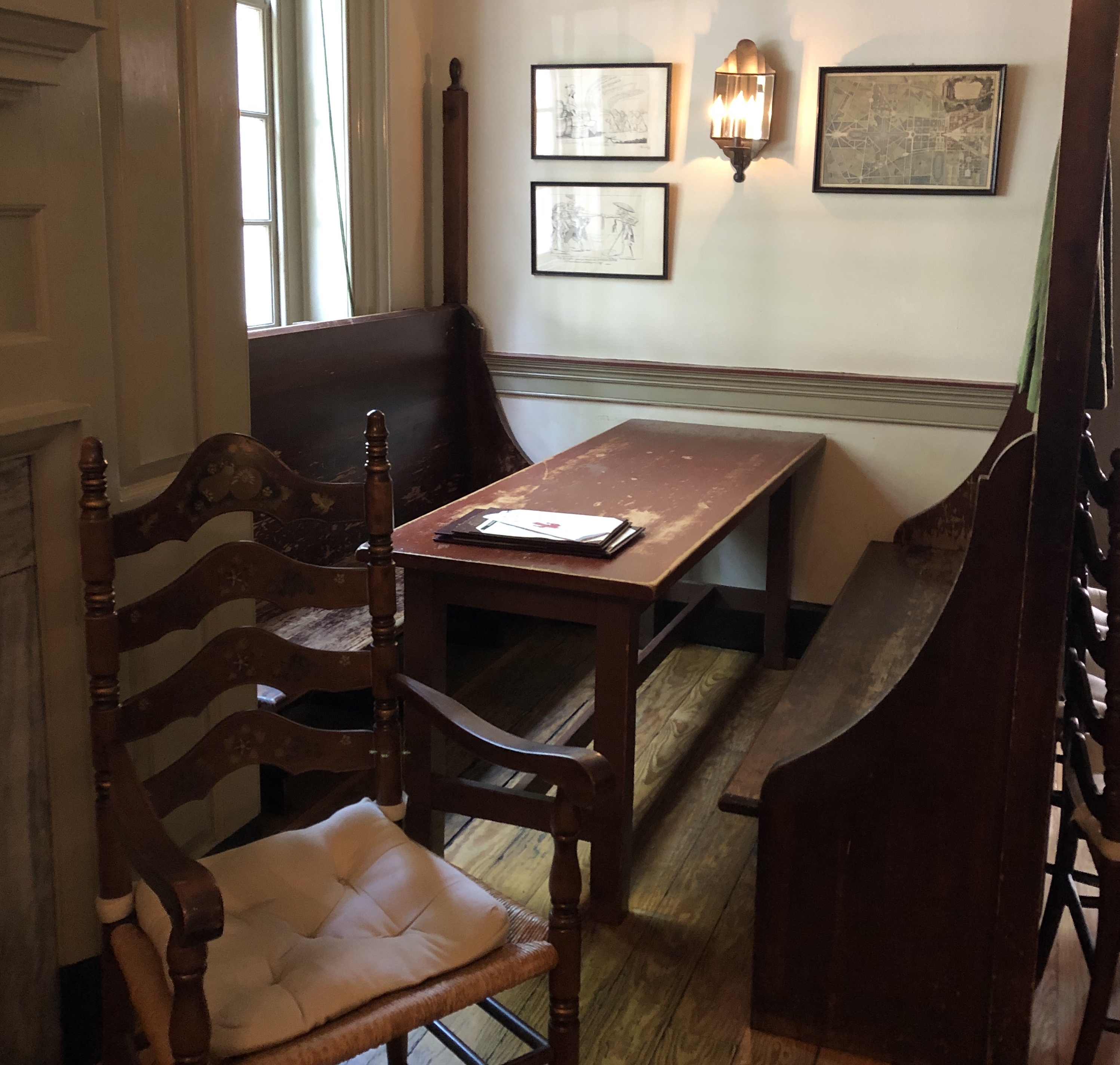
. . . . . . . . . . . . . . . . . . . . . . . . . . . . . .
For more history nerd posts like these, subscribe to the blog. Guest posts are welcomed and encouraged. Contact me for details.
For behind-the-scenes author-related news, giveaways, and to find out where I might be speaking near you, subscribe to my e-publication, CHASING HISTORIES.

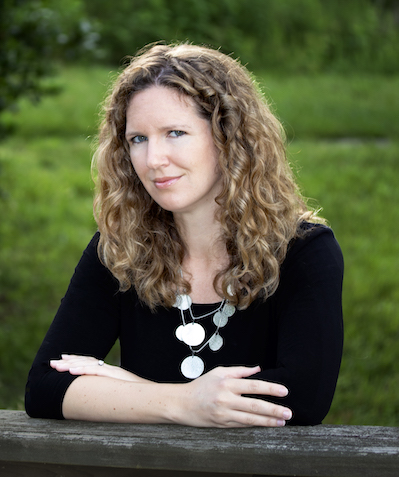 When people think of the American revolution, freedom comes to mind—freedom, liberty, and independence from the necessity of following rules established without any thoughtful representation. But these ideals weren’t and aren’t limited to government. The English language itself went through its own revolution, with founding fathers such as Ben Franklin at the helm here too.
When people think of the American revolution, freedom comes to mind—freedom, liberty, and independence from the necessity of following rules established without any thoughtful representation. But these ideals weren’t and aren’t limited to government. The English language itself went through its own revolution, with founding fathers such as Ben Franklin at the helm here too.